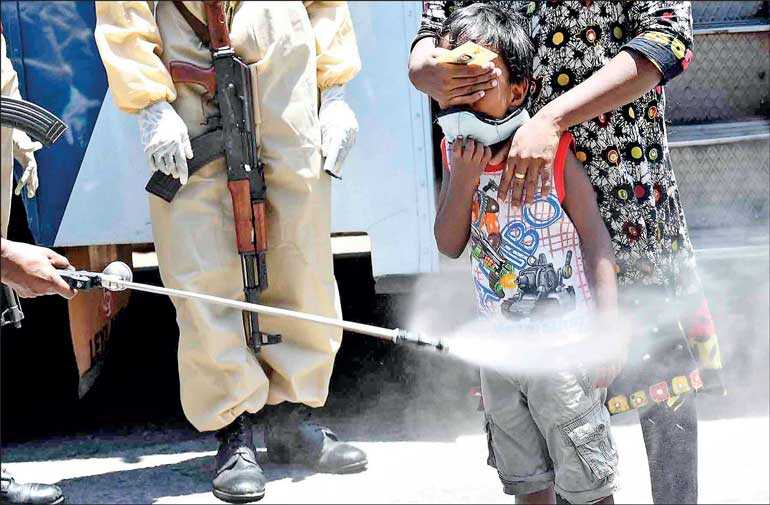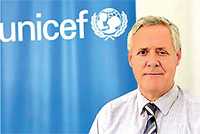Thursday Feb 26, 2026
Thursday Feb 26, 2026
Friday, 13 November 2020 00:00 - - {{hitsCtrl.values.hits}}

COVID-19 has become more than a health crisis. Millions are facing economic hardship for the first time, and those who were already struggling before, are facing devastation. Children, due to their particular developmental stage, risk even greater fallout from this crisis – Pic by Shehan Gunasekara
By Tim Sutton
 What if, suddenly, you lost all or most of your income and had to cut the number of meals your family eats? And your children forgot most of what they learned in school? This has happened to too many families around the world, and in Sri Lanka, this year.
What if, suddenly, you lost all or most of your income and had to cut the number of meals your family eats? And your children forgot most of what they learned in school? This has happened to too many families around the world, and in Sri Lanka, this year.
COVID-19 has become more than a health crisis. Millions are facing economic hardship for the first time, and those who were already struggling before, are facing devastation. Children, due to their particular developmental stage, risk even greater fallout from this crisis. This means that the decisions being made by the Government of Sri Lanka now, as it prepares its Budget Estimates for 2021, will be critical in limiting the damage of COVID-19 on the country, its future, and its children.
Prior to COVID-19, despite Sri Lanka’s remarkable progress in improving the lives of children over decades, the majority of children were still being brought up in families that were struggling financially. Child wasting was already at the very high rate of 15 per cent of children under five nationwide; food comprised over 40 per cent of total expenditure for most families, making it difficult for parents and caregivers to provide adequately for their children.
There were already disparities in learning outcomes, as children from different backgrounds and parts of the country access schools which range in quality and resources, with almost four in 10 children aged three to four years not attending pre-school. Further, violence, abuse and neglect against children remains common.
COVID-19 has only exacerbated these challenges. The loss of jobs and income has severely impacted the ability of vulnerable households to provide for their families. As a result, child wasting is set to rise further.
Global estimates suggest that an additional 6.7 million children will become wasted globally, an increase of 14 per cent, with South Asia being the most affected. Learning losses due to the prolonged school closure are a reality and will likely increase disparities. Evidence shows the significant long-term negative impact of school closures on children’s learning outcomes for years, translating into a loss of earnings into adulthood.
The Budget 2021 must therefore ensure that investments for children are prioritised. To give children the best start in life, and support families across the country, the government could expand its existing Nutritional Allowance for Pregnant and Lactating Mothers program, ensuring mothers continue to receive financial support until their child turns two, as a step towards providing a universal child benefit in the coming years. This would require a relatively low level of investment but have significant impact.
Providing nutrition supplementation and therapeutic feeding to children under five who are suffering from malnutrition (such as Thriposha, BP-100, and multiple micronutrients) must continue and the coverage increased to ensure no malnourished child is left behind.
Learning losses must be effectively addressed with adequate funds for remedial measures for learning recovery and mitigation of widening disparities, like supporting schools and teachers to adjust the curriculum, conduct formative assessments, as well as an increased allocation to the preschool education sub-sector, including for free meals. Funds must also be allocated to ensure the prevention of violence, abuse and neglect of children.
Behind every negative statistic there are children who are missing the chance to realise their full potential. My message is simple. Despite the challenge of COVID-19, with the right prioritisation and investment in the 2021 Budget, Sri Lanka and its children can come out of this crisis better protected than before.
A nation’s budget is one of the most important policies for children. Let us ensure that this Budget delivers the financial means necessary to fulfil the rights of every child.
(The writer is Representative, UNICEF Sri Lanka.)